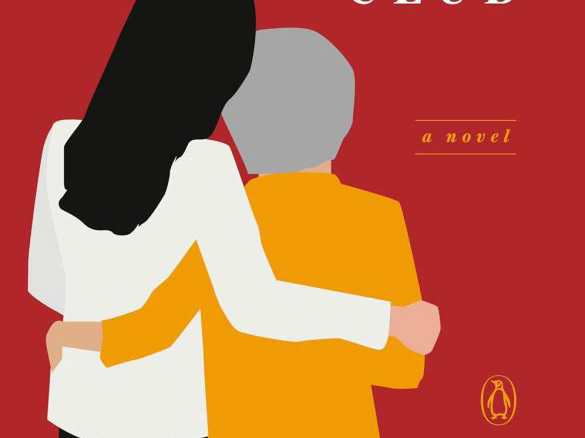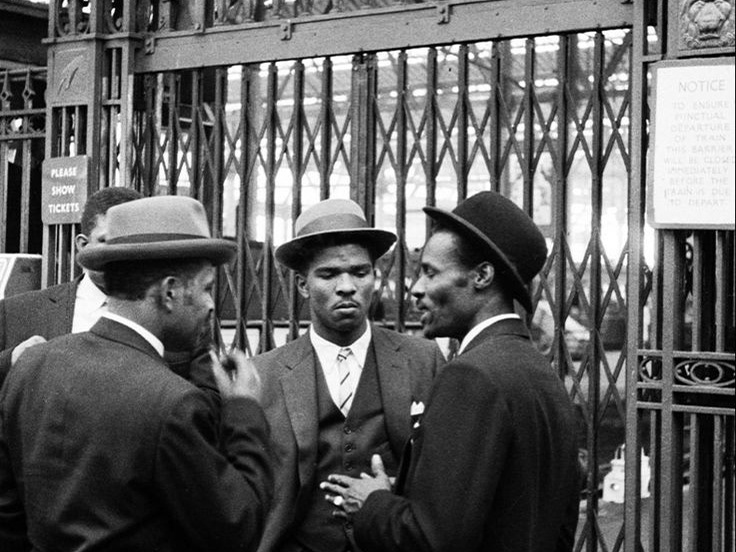Meena Kumar’s Introspection is the Backbone of Meera Syal’s Anita & Me
It is not often that I read a novel for a course and expect to meet a character that provides a reader with a narrative as lucidly written as Meena’s, who demonstrates her keen social awareness and conscious commentary throughout the novel. In Meera Syal’s Anita & Me, the protagonist, Meena Kumar, an introspective nine-year old girl, articulates her valuable insights and deep observations while she navigates the relationships she maintains and observes among her family, friends, and with her own cultural identity. This essay will provide quotes that exemplify both Meena’s remarkably strong intuition in these three specific areas of her life, and how her talent for articulating her observations and emotions proves to be a vital element of the narrative as a whole.
The novel’s opens with Meena, who admits, “I do not have many memories of my very early childhood, apart from the obvious ones, of course. You know, my windswept, bewildered parents in their dusty Indian village garb standing in the open doorway of a 747, blinking back tears of gratitude and heartbreak as the fog cleared to reveal the sign they had been waiting for, dreaming of, the sign planted in tarmac and emblazoned in triumphant hues of red, blue, and white, the sign that said simply, WELCOME TO BRITAIN.” (Syal 9). The mix of gratitude and heartbreak that Meena mentions, however, remains close to reality. Meena understands that her parents made many sacrifices to give the family better economic opportunities in Britain. Although they hoped in a better future, they also knew that they were leaving behind loved family members who they would miss very much.
Meena loves her family, and she often picks up on the motives behind their words and actions more accurately than any other character in the novel. She says of her father’s gambling habit, “But whatever he did to make money was not what papa really was; whilst my Aunties and Uncles became strangers when listening to him, papa became himself when he sang. My tender papa, my flying papa, the papa with hope and infinite variety. And then one day I made a connection; if my singing papa was the real man, how did he feel the rest of the time?” (Syal 83).
At just nine years old, she has the ability to articulate her mother’s innermost emotions with accuracy. Like her daughter, Meena’s mother, Daljit, has moments in which she angrily expresses the frustration she feels as she is forced to make sense of life in a foreign place: “I will never understand this about the English, all this puffing up about being civilised with their cucumber sandwiches and cradle of democracy big talk, and then they turn round and kick their elders in the backside, all this It’s My Life, I Want My Space stupidness, You Can’t Tell Me What To Do cheekiness, I Have To Go To Bingo selfishness and You Kids Eat Crisps Instead Of Hot Food nonsense. What is this My Life business, anyway? We all have obligations, no one is born on their own, are they?’” (Syal 58-59). Meena relates one of her mother’s frequent complaints about the English. Using Mrs. Worrall’s case as an example, Daljit criticizes the fact that English children often abandon their parents once they turn 18, following ideals of independence and individualism that might benefit them personally, but that keeps families from being truly tight-knit.
Through this familial lens, Meena is able to make strong connections between the contrasting natures between observations and apply them to understanding both English and Indian culture. Growing up as a second-generation Indian immigrant in England prompts Meena to reflect on her cultural roots. Although she generally enjoys life in Tollington, she realizes that she will never feel fully English because her family makes her feel connected to India, and despite her efforts “to scrub away her difference with soap and water,” (Syal 180), she is not easily accepted as fully English by many of the white people she lives among, like Sam and Anita, who she instinctively knew quietly considered her foreign and uncool.
It’s not until Meena meets joyful and caring Nanima, her maternal grandmother, who immediately likes Meena and recognizes her as a brave and boisterous soul, like herself when she was young. Nanima’s detailed and genuine stories of life in India prompt Meena to develop a curiosity and newfound sense of pride for her Indian roots. Their unspoken bond is exemplified in a scene in Chapter 8: “I ran around the front room whooping ‘Junglee! Junglee!’ and doing mock kung fu kicks…to make Nanima laugh even harder” (Syal 200). To this, Meena’s father shouts, “’Oy! It is not a compliment, you know!’ But Nanima’s expression told me it was exactly that” (Syal 200-201). The emotional security Meena receives from Nanima stays with her well into the last chapter, when her growth and maturity are proven when she says, “I now knew I was not a bad girl, a mixed-up girl, a girl with no name or no place. The place in which I belonged was wherever I stood and there was nothing stopping me simply moving forward and claiming each resting place as home.” (Syal 303).
The entire plotline of Meena’s friendship with Anita is guided by the faith she has in Anita as a friend and a person. Meena’s embedded inclination to be understanding as the daughter of Indian immigrant parents, she consistently chooses to grant her the benefit of the doubt. For example, Meena says, “When I said that we talked, what I mean is that Anita talked and I listened with the appropriate appreciative noises. But I never had to force my admiration, it flowed from every pore because Anita made me laugh like no one else; she gave voice to all the wicked things I had often thought but kept zipped up inside my good girl’s winter coat.” (Syal 138). Even though Meena claims to be attracted to Anita’s lifestyle of gossip and getting in trouble, she is unable to genuinely wish harm upon others. Her compassion prevents her from wanting to humiliate other people, a desire that so often animates Anita. Meena is too conscious of other people’s feelings to remain attached to someone who behaves callously.
Despite her admiration for Anita, Meena’s intuition proves to be accurate when Deidre abandons her family and breaks her promise of buying Anita a horse. Meena’s efforts to protect Anita prove to be useless, as Anita remains stubbornly independent and unable to open herself up to sharing her emotions. However, a turning point reveals that Anita begins to trust Meena. When it is stated that “Anita did not even look up, making Sherrie feel like she was doing her a favour…‘Meena’s got to come too,’ Anita said finally, making my chest swell with gratitude.” (Syal 188). Shortly after, Meena realizes that Anita, “the same skinny harpy who had just narrowly missed gouging out another girl’s eyes…had a vulnerability, a neediness, that lay just beneath the surface…[and she] was as scared and confused as anyone else.” (Syal 242).
Meena’s deep reflections don’t just show us the raw beauty of expressing emotions; they take us by the hand and lead us through the ups and downs of her life story. I wanted to explore Meena's thoughtful introspection specifically in terms of her family, cultural roots, and friendships. But as I put pen to paper, it became clear how these parts of her life often bleed into one another. Her family and friends shape her sense of being both Indian and English, and her personal revelations about culture and family dynamics guide her towards forgiveness instead of revenge for Sam and Anita in the end. Meena’s journey of self-discovery and hyperawareness of her emotions and the feelings of those around her is not only captivating, but also a reminder of how interconnected our lives really are.
Works Cited
Syal, Meera. Anita and Me. Oberon Books. 1996.




